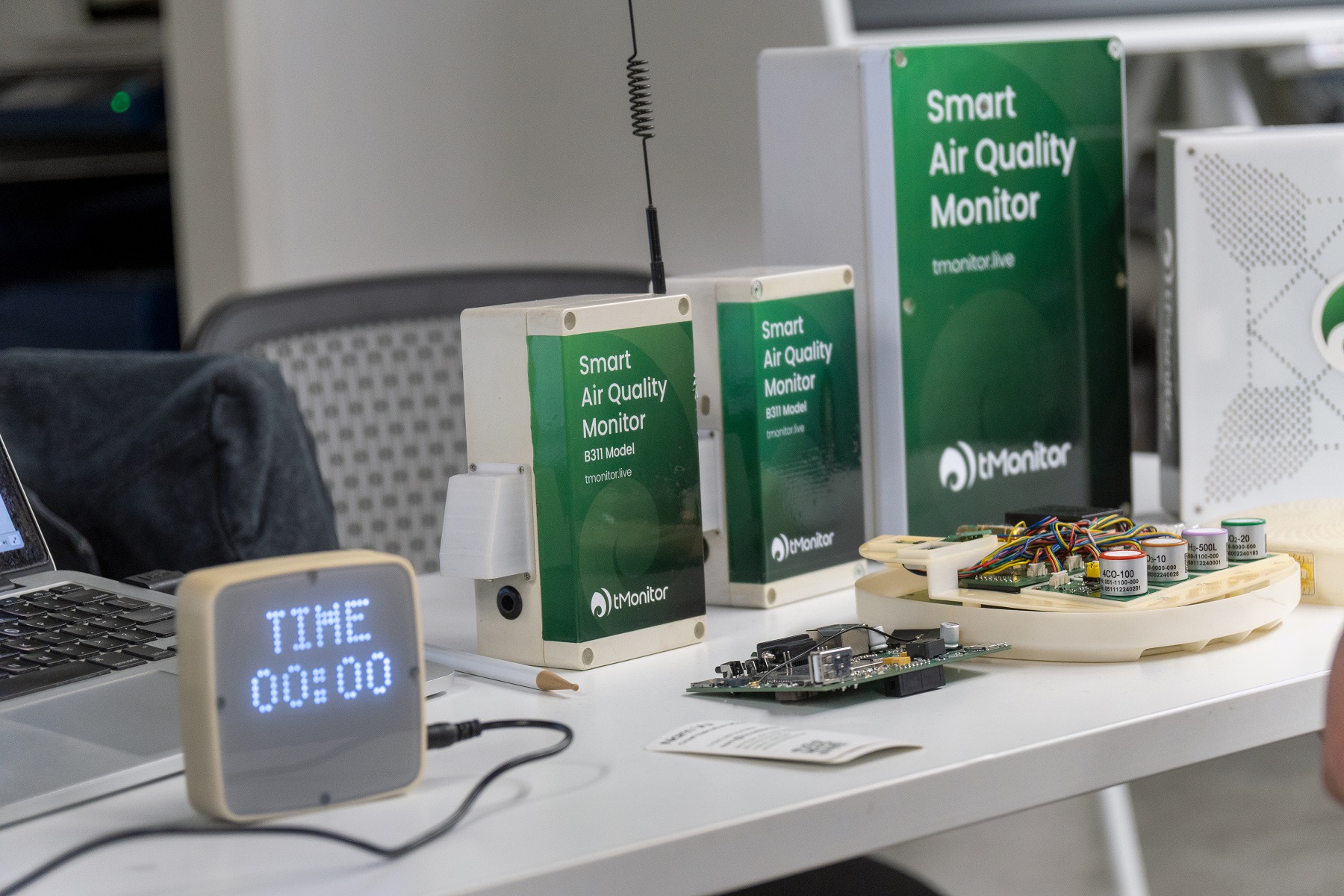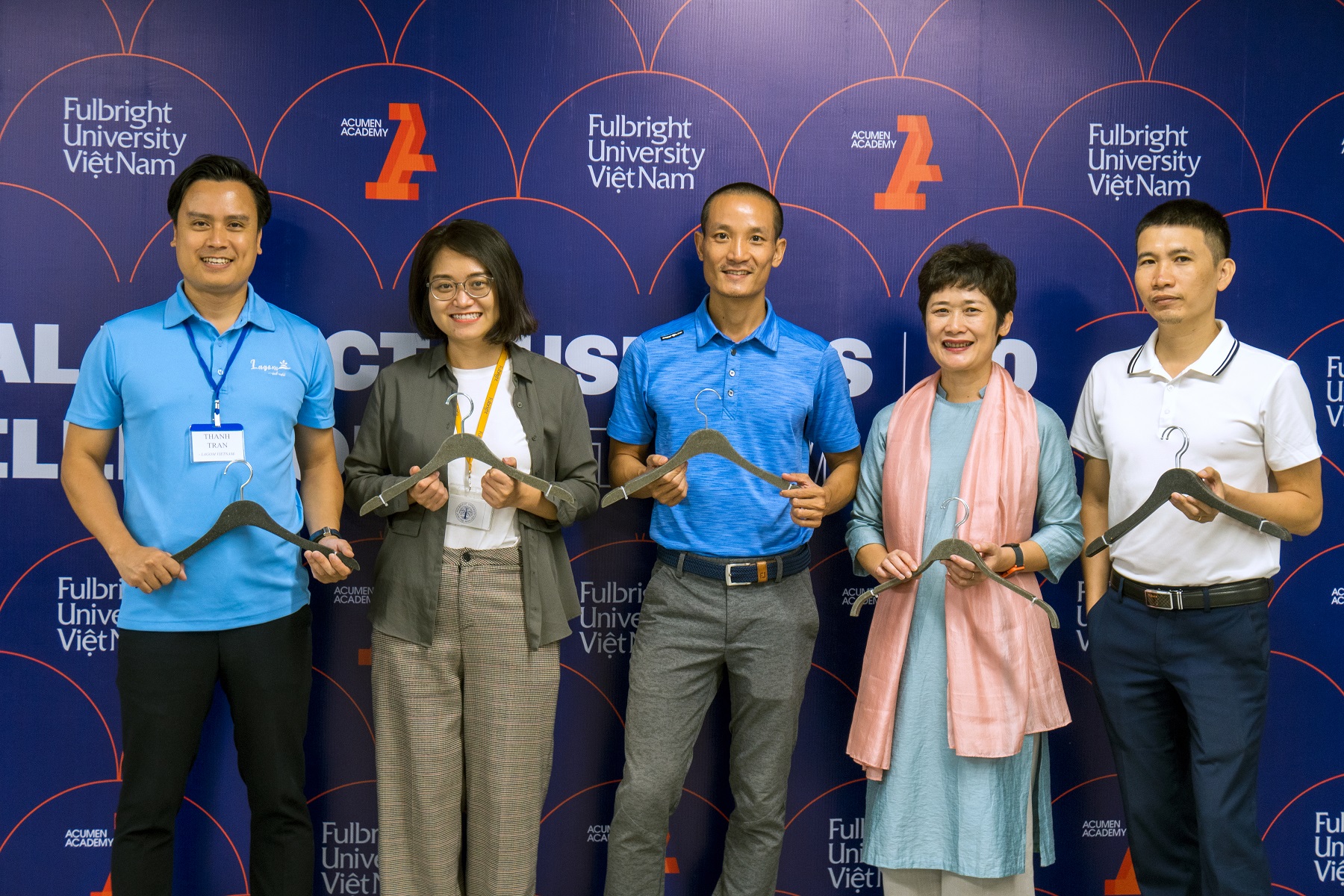
Early this month, our campus was alight, and truly inspired, with an afternoon of conviviality, the spirit of community, and roaring congratulations as the Final Pitch and Showcase event, which celebrated the 13 social impact businesses participating in the Fulbright x Acumen “Social Impact Business Accelerator” program, took place.
The event marked the culmination of an intensive yet enriching training program organized for the first time in Vietnam by Acumen, a global nonprofit organization aiming to change the way the world tackles poverty by investing in companies and change-makers, in collaboration with Fulbright University Vietnam. Over the course of 12 weeks, 13 social impact businesses (SIBs) in Vietnam had learned the essentials of building a business model that can achieve both social impact and profitability.
“And the Oscars goes to…,” Mr. Nguyễn Phương Lam, a distinguished philanthropist in Asia and facilitator of the Fulbright x Acumen “Social Impact Business Accelerator” program, light-heartedly quipped when announcing the social impact business to receive the USD10,000 seed fund, after all the participating SIBs had delivered their pitches. The judging panel included Mr. Son Nguyen, CEO of the Vietnam Oman Investment; Mr. Navin Muruga, Associate Director of Acumen; Mr. Jeremy Nguyen-Phuong, Co-founder of Udentity and Change Leader Academy; Ms. Oanh Pham, Founder and Director of CSIP; and Mr. Henri de Reboul, Co-founder and CEO of PhiTrust Asia.
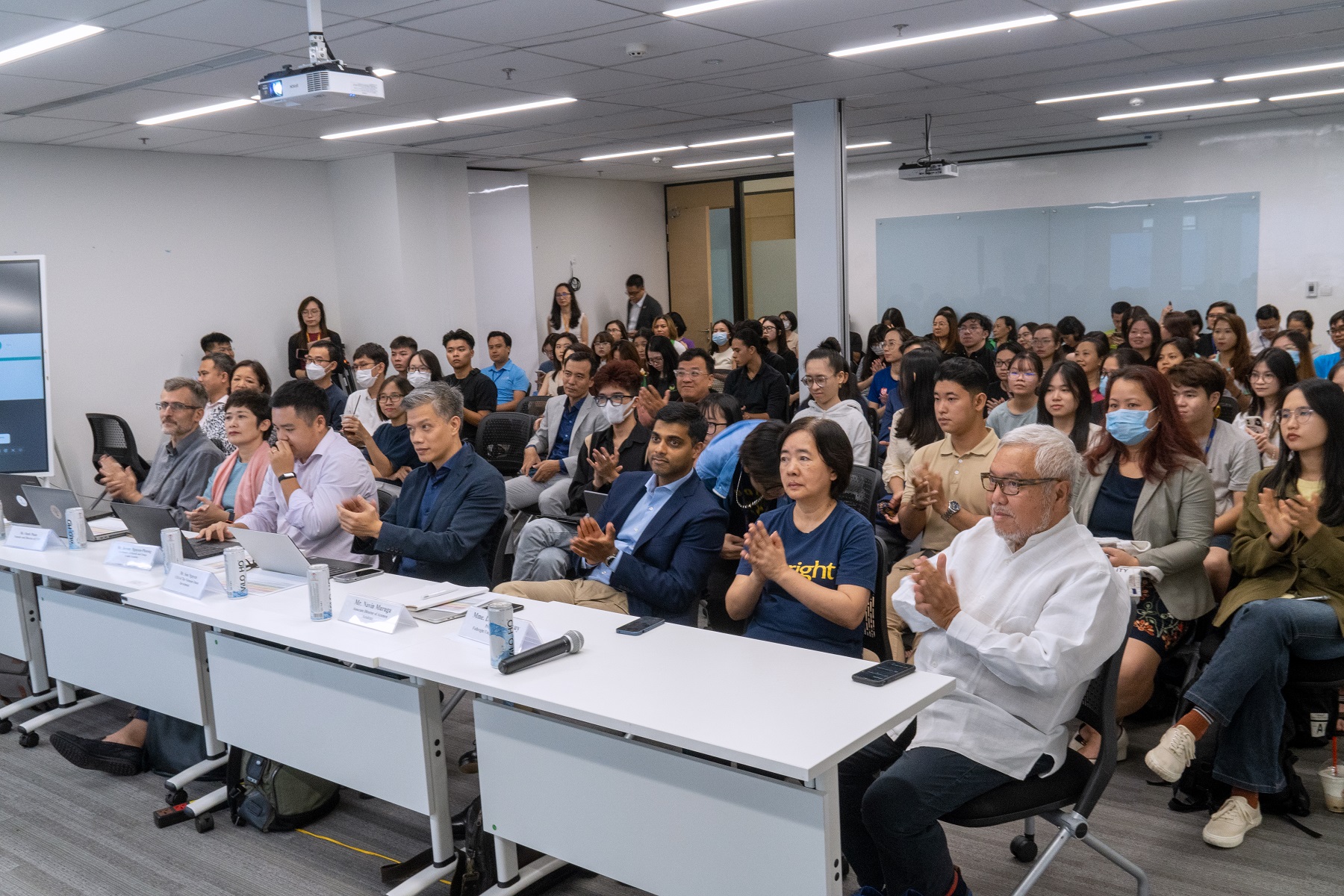
The judging panel
The fund eventually went to WeGrow, a SIB that provides comprehensive sex education solutions for schools and families across Vietnam. “It was truly unexpected,” said Ms. Linh Hoang, co-founder and CEO of WeGrow. Asked about how her pitch was able to win over the judging panel, she shared, “As you may know, ‘Pitching the Strategic Story of Your Business’ was one of the modules being taught during the Acumen x Fulbright Accelerator program. And so I spent a lot of time preparing my pitch, specifically on how to effectively convey the underlying pathos behind my business.
“Most importantly, I think it’s just the work that we do. Three years ago when we started, my experience with pitching was different, everything was abstract, unclear and difficult for people to understand. But the more you put your heart and effort into the work, the more you understand your business, and the kind of vision you talk about gradually becomes more clear. And that’s why you’ll be able to communicate it well to people. So emotion, yes, but ultimately it’s the work we do.”
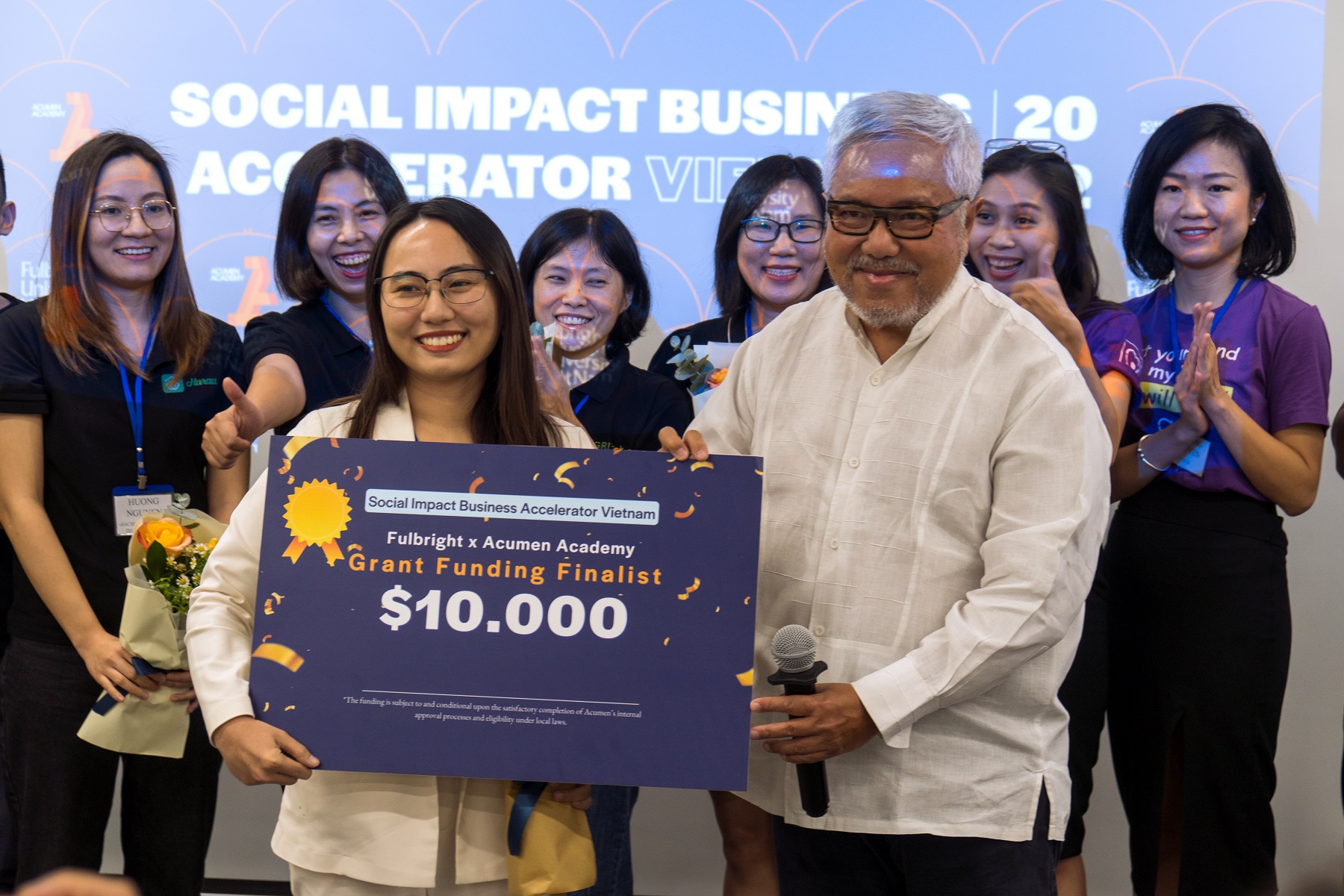
Ms. Linh Hoang, co-founder and CEO of WeGrow, received the grant funding from Mr. Nguyen Phuong Lam.
Emotional rationale was not the only reason that helped WeGrow achieve the program’s grand prize. Thanks to other lessons such as “Visions of Scale and Enterprise Models”, “Customer Insights and Business Experiments”, “Aligning a Pricing, Sales and Marketing Strategy to Your Value Proposition”, and “Scaling Up in Vietnam”, or “Building Your Financial Story and Model”, Ms. Linh Hoang had successfully demonstrated to the judges how she could scale up her business across Vietnam.
These were also the valuable lessons learned by other SIBs during the Fulbright x Acumen “Social Impact Business Accelerator” program, which in turn, allowed two additional SIBs unexpectedly being awarded the seed fund of USD5,000 each. They were Agritage Vietnam, a sustainable tourism business that supports ethnic minorities in Sơn La province, and Survival Skills Vietnam (SSVN), which provides first-aid courses and training so that “every family in Vietnam shall have at least one member who knows how to do first aid to save lives.”
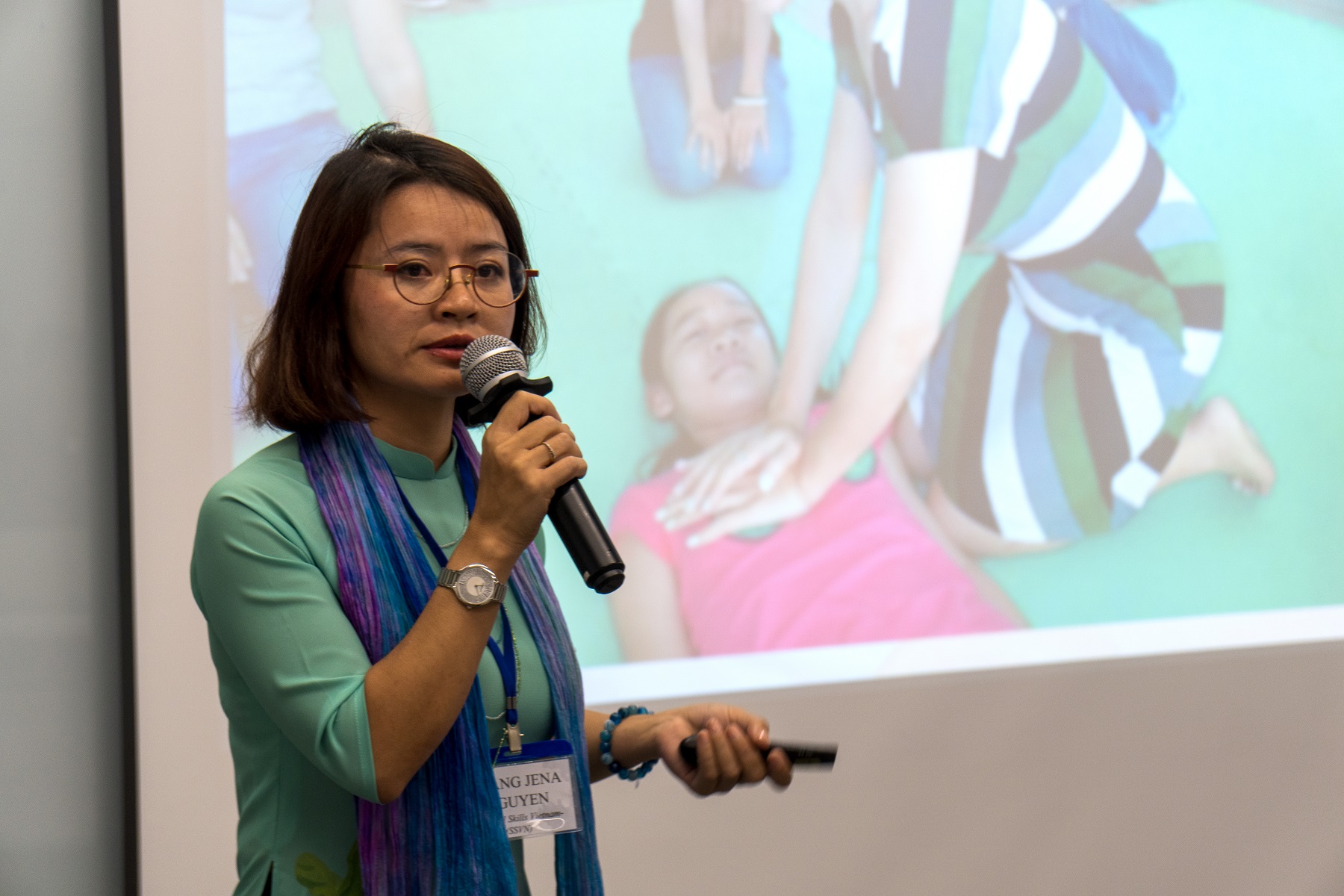
Ms. Trang Nguyen, co-founder of SSVN, delivered her pitch.
“My background was in Social Community Development, so I had little knowledge about business – how to call for investment, how to make a financially viable business plan. That’s why I chose to enter the Acumen x Fulbright Accelerator program,” said Ms. Trang Nguyen, co-founder of SSVN. “After this program, I now have the skills, the knowledge, and the confidence to meet investors and call for their support, so we can further realize our dream.”
Ms. Dinh Thi Huyen, founder of Agritage Vietnam said, “After the pandemic, our business faced a lot of challenges. Since joining the program, we have changed the way we think about our business and financial model. We now have the tools to scale up our services and revenues, to build up logical and systematic procedures for our business. Not to mention the mentors and consultants provided to us by Acumen were very supportive, informative, and truly inspiring as well.”

Ms. Dinh Thi Huyen, founder of Agritage Vietnam, celebrated with her team.
All graduated SIBs were also welcomed into Acumen Academy’s Foundry community, where they will have access to follow-up support as part of a global network of more than 900 social innovators. “We think that many problems facing the world nowadays are not just local, but are shared across the world,” said Mr. Nam Tran, Director of Development and Strategic Initiatives of Fulbright University Vietnam. “Our ultimate goal is to make sure that the local ecosystem which supports social impact businesses in Vietnam is continually developed, reinforced, and also connected to the world.”
As such, the partnership between Fulbright University Vietnam and Acumen was “a match made in heaven”. Whereas Acumen provided a training program built on their experience of over 20 years of investing and working with social impact businesses across the world, Fulbright offered valuable insights on Vietnamese local context and landscape, so that “the replication of Acumen’s training model, and even the innovation on that, is possible here in Vietnam,” according to Mr. Nam Tran. “One of our missions is to create the next generation of global change-makers and problem-solvers for a new and rapidly evolving world. And that’s not necessarily just through our faculty and students. We really see ourselves as a platform for impact, a convener for all the stakeholders who wish to deliver positive change and equip the community with the much needed network, support and resources, so they could go after the biggest challenges of the day.”




